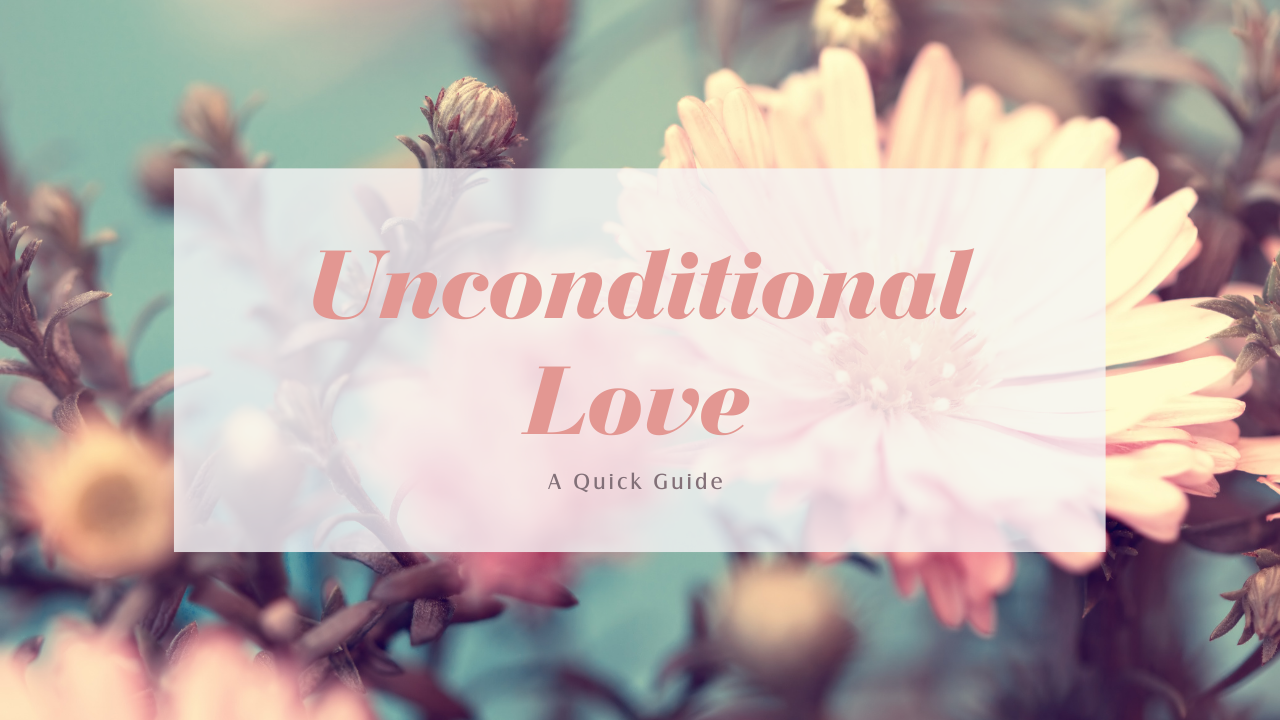Unconditional Love: Why You Want to Love Unconditionally

Unconditional Love: Why You Want to Love Unconditionally
With the month of romance upon us, let’s talk about love.
Start by thinking about the love you give: is it conditional or unconditional? There are great reasons to learn to do unconditional love.
Unconditional love is what we all dream of. Someone to love us despite the fact we have bad hair, have dribbled food on our top or haven’t put the lid back on the toothpaste. In other words, being loved for who we are, not what we do, look like, say or don’t say. However, the benefits of loving unconditionally don’t stop there.
Viktor Frankl, a holocaust survivor, author of Man’s Search for Meaning and Logotherapist, believed that unconditional love and leading a meaningful life were interlinked. Furthermore, both Frankl and Abraham Maslow, American Psychologist and creator of Maslow’s Hierarchy of Needs, believed that unconditional love was the key to becoming ‘self-actualized’ and able to reach your full potential.
If unconditional love feels good, gives meaning to our life and helps us reach our potential, let’s explore what unconditional love is and how you can have more!'
What Is Unconditional Love?
Unconditional love is a mature love. It’s a deep flow of love inside that connects you to another. Just because you love unconditionally, it doesn’t mean you are oblivious to your loved one’s annoying habits; i.e. it doesn’t make you or them perfect. What it means, is that your love doesn’t stop flowing when their behaviours annoy you.
Unconditional love is not reserved for soulmates. You can learn to unconditionally love anyone, including your pets, and some Buddhist traditions are based on this.
What is Conditional Love?
Conditional love manipulates or puts conditions on giving or receiving of love. It plays psychological games, uses attention, affection or sex to punish or reward. An example of someone using conditional love is, “If you loved me, you would give me your chocolate/do the dishes/pay your bills/lose weight”, etc.
How to Love Unconditionally
Unconditional love needs to start with you. If you are unable to love yourself unconditionally, you are unlikely to extend unconditional love to another, no matter how in love with them you are. If you do not love yourself, you can learn, whatever age you are.
Just like unconditionally loving another, unconditionally loving ourselves means connecting with who we are and not rewarding or punishing ourselves based on what we do, look like, say or don’t say.
How Do You start?
Accept you are human and therefore not perfect. Practically, love yourself regardless of what the facts of your life are. You can still take action to improve facts (such as your waistline or bank balance) but acting from a place of love and acceptance rather than self-criticism, not only feels so much better but also improves your chances of changing the facts to your favour.
For Frankl, Maslow and some Buddhists, unconditional love means so much more than loving another person. Unconditional love is a way of being that can benefit the giver and receiver, allowing both to reach their full human potential. Let’s all start loving unconditionally and let’s start with you today!
This article first appeared in February 2018’s Peninsula Living and Northshore Living
Love Zoe x
If you're feeling stuck, discouraged or disconnected, we can help. Coaching and Courses designed help you feel light, burn bright and realise your potential. Ready to begin?
Want to Stay Connected?
Never miss a helpful tip.
Join our mailing list to receive insights, inspiration, action plans and latest news, all designed to help you shine.
Your details will never be shared.


